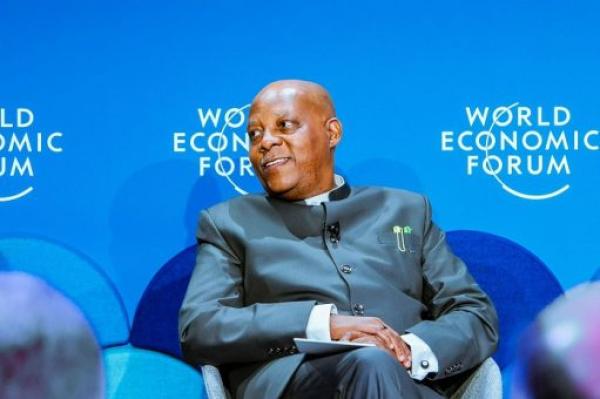
The International Monetary Fund, IMF, yesterday rated emerging economies as holding the best capacity potential for sustaining the modest recovery being witnessed in the global economy system within the next year.
This is even as it projected that the Ebola scourge may hamper economic development strides in the three most ravaged countries of Guinea, Sierra Leone and Liberia, despite global efforts to mitigate its impact on socio-economic activities in the West African sub-region.
Briefing the media on the World Economic Outlook, WEO, report for 2014- 2015 in Washington D.C, the Economic Counsellor and head of the IMF’s Research Department, Olivier Blanchard, said that while recoveries in some of the advanced countries like the US, China and those in the Euro zone remained slow, the indices in the emerging economies promised greater assurances of sustainability of growth in 2014-2015 period.
He explained that while global growth stood at 3.3 per cent in 2014 with the potential of rising to 3.8 per cent in 2015, the legacies from crisis, low potential growth weighed on recovery increased downside risks to global growth, including financial and geopolitical
According to the IMF chief who spoke on the economic outlook, amid contributions by other officials including, Thomas Helbling and Gian Maria Milesi-Ferretti, the weak and uneven global economic recovery has continued, but reflecting different evolutions across various countries and regions.
Blanchard said: “The weaker than expected growth outlook for 2014 reflects setbacks to economic activity in the advanced economies during the first half of 2014, and a less optimistic outlook for several emerging market economies.
“Potential growth rates, that is, the pace at which annual output can expand without pushing up inflation, are also being revised down. These worse prospects are in turn affecting confidence, demand, and growth today.”
Specifically, he identified two underlying forces as weighing on global recovery, namely the legacies of the pre crisis boom and the subsequent recession, notably high debt burdens and unemployment.
On the growth trends in emerging market and developing economies, Blanchard reported that the countries will continue to account for the lion’s share of global growth.
He noted that even at 4.4 per cent for 2014, the growth forecast was a bit weaker than in the April 2014 WEO in the emerging economies, adding that the slowdown was due to lacklustre domestic demand and the impact of increasing geopolitical tensions, especially on Russia and neighbouring countries.
“In advanced economies, the legacies of the pre-crisis boom and the subsequent recession, notably high debt burdens and unemployment, still cast a shadow on the recovery, and low potential growth ahead is a concern.
“Several emerging markets are also adjusting to lower potential growth. Across the globe, investment has been weaker than expected for some time. As a result, global growth is still mediocre,” Blanchard added.
While noting that economic evolution is becoming more differentiated in major countries and regions, with the pace of recovery reflecting various country-specific conditions, Blanchard reported that in advanced economies, growth is forecast to rise to 1.8 per cent in 2014 and 2.3 per cent in 2015.
He explained that much of the projected strengthening in activity reflected faster growth in the United States following a temporary setback in the first quarter of this year just as employment growth has been strong, and household balance sheets have improved amid favourable financial conditions and a recovering housing market.
According to him, in the Euro area, recent growth disappointments highlighted lingering fragilities, adding that a gradual, but weak recovery is projected to take hold, supported by a sharp compression in interest spreads for stressed economies and record-low long-term interest rates in core euro area economies.
While reflecting further on the growth prospect across the economic zones globally, Blanchard explained that where some zones would experience week growth rates, sub-Saharan Africa will witness stronger growth because of supportive external demand conditions and strong investment demand.






















